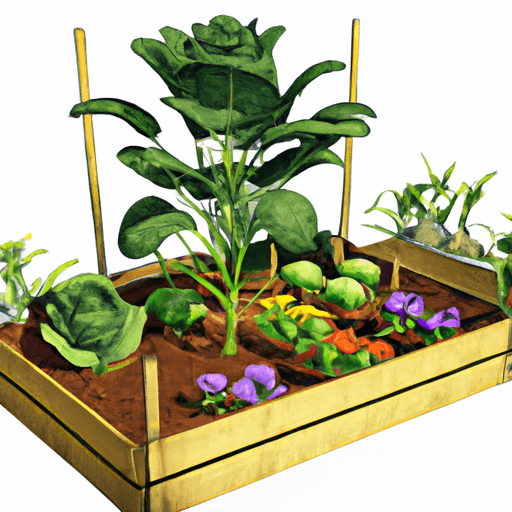Growing Your Own Vegetables at Home
Growing your own vegetables at home offers a wide range of benefits, from saving money to reducing environmental impact. In this article, we'll explore how to start a vegetable garden and the various advantages of doing so. We'll look at the health benefits, financial savings, and environmental impact of growing vegetables at home. Finally, we'll provide tips on how to start and maintain your own vegetable garden.
Health Benefits
Growing your own vegetables at home provides numerous health benefits. Homegrown vegetables are generally fresher and contain more nutrients than store-bought produce. Additionally, you have the opportunity to choose organic growing methods, meaning fewer chemicals and a healthier end product. Growing your own vegetables can also lead to increased physical activity, as tending to a garden requires manual labor and movement.
Financial Savings
Growing your own vegetables can also lead to significant financial savings. You can save money on grocery bills by not having to purchase vegetables from the store. Additionally, you can save money on fertilizers and other gardening supplies, as many of these supplies can be found for free or at a low cost. Finally, you can save money on energy bills by using natural methods, such as rainwater collection, to water your plants.
Environmental Impact
Growing your own vegetables has a positive environmental impact as well. Homegrown vegetables require fewer resources than those grown commercially, meaning less water, fertilizer, and energy are used. Additionally, you can reduce the amount of waste produced, as you will not be using packaging materials when harvesting your own vegetables. Finally, you can reduce the amount of transport required to deliver vegetables to stores, as you will be harvesting them from your own garden.
Tips for Starting and Maintaining a Vegetable Garden
Starting and maintaining a vegetable garden requires planning and effort. Here are some tips to get you started:
- Choose a spot in your yard that receives plenty of sunlight.
- Choose vegetables that are easy to grow and require minimal effort.
- Prepare the soil by tilling, adding compost, and removing weeds.
- Plant your vegetables according to the instructions on the package.
- Water your vegetables regularly and fertilize as needed.
- Harvest your vegetables when they are ripe and ready.
- Mulch around your plants to help retain moisture and control weeds.
By following these tips, you can start and maintain a successful vegetable garden and reap the many benefits of growing your own produce.
Growing your own vegetables at home offers numerous advantages, from health benefits to financial savings to environmental impact. With a little planning and effort, you can start and maintain your own vegetable garden and enjoy the many benefits it provides.


















Comments
Leave a Comment